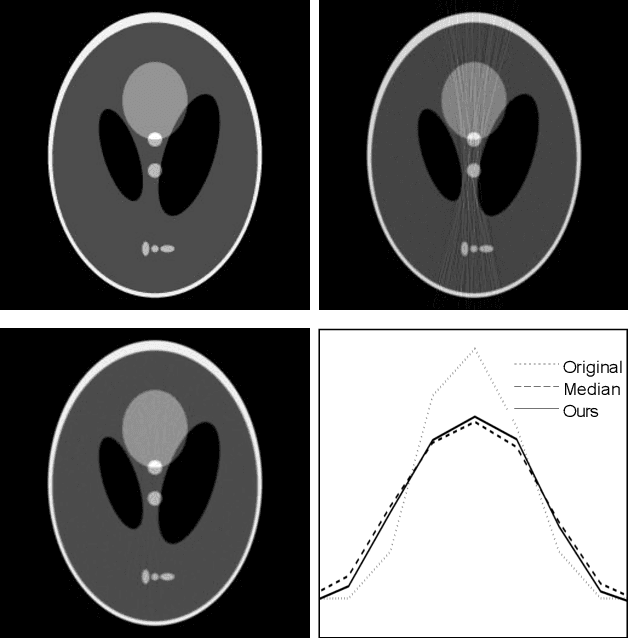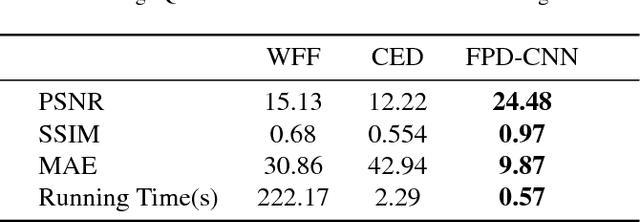Fengling Wang
Fast LLMMSE filter for low-dose CT imaging
Mar 23, 2019


Abstract:Low-dose X-ray CT technology is one of important directions of current research and development of medical imaging equipment. A fast algorithm of blockwise sinogram filtering is presented for realtime low-dose CT imaging. A nonstationary Gaussian noise model of low-dose sinogram data is proposed in the low-mA (tube current) CT protocol. Then, according to the linear minimum mean square error principle, an adaptive blockwise algorithm is built to filter contaminated sinogram data caused by photon starvation. A moving sum technique is used to speed the algorithm into a linear time one, regardless of the block size and thedata range. The proposedfast filtering givesa better performance in noise reduction and detail preservation in the reconstructed images,which is verified in experiments on simulated and real data compared with some related filtering methods.
Optical Fringe Patterns Filtering Based on Multi-Stage Convolution Neural Network
Jan 02, 2019



Abstract:Optical fringe patterns are often contaminated by speckle noise, making it difficult to accurately and robustly extract their phase fields. Thereupon we propose a filtering method based on deep learning, called optical fringe patterns denoising convolutional neural network (FPD-CNN), for directly removing speckle from the input noisy fringe patterns. The FPD-CNN method is divided into multiple stages, each stage consists of a set of convolutional layers along with batch normalization and leaky rectified linear unit (Leaky ReLU) activation function. The end-to-end joint training is carried out using the Euclidean loss. Extensive experiments on simulated and experimental optical fringe patterns, specially finer ones with high density, show that the proposed method is superior to some state-of-the-art denoising techniques in spatial or transform domains, efficiently preserving main features of fringe at a fairly fast speed.
 Add to Chrome
Add to Chrome Add to Firefox
Add to Firefox Add to Edge
Add to Edge